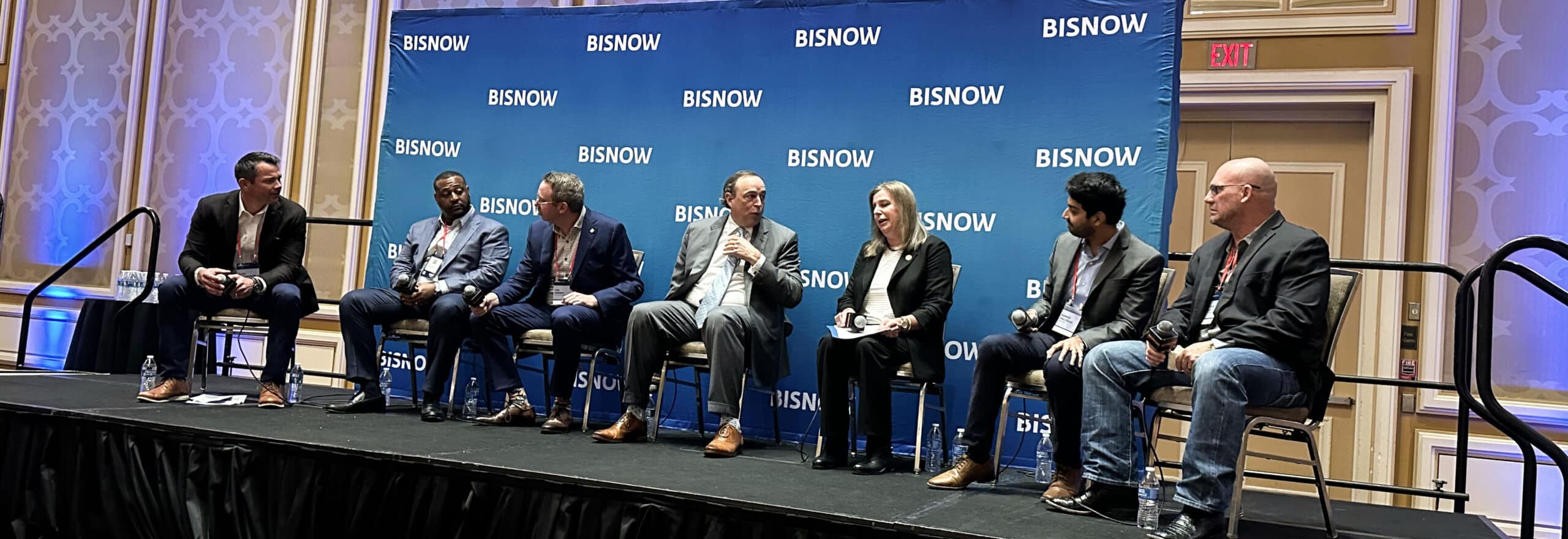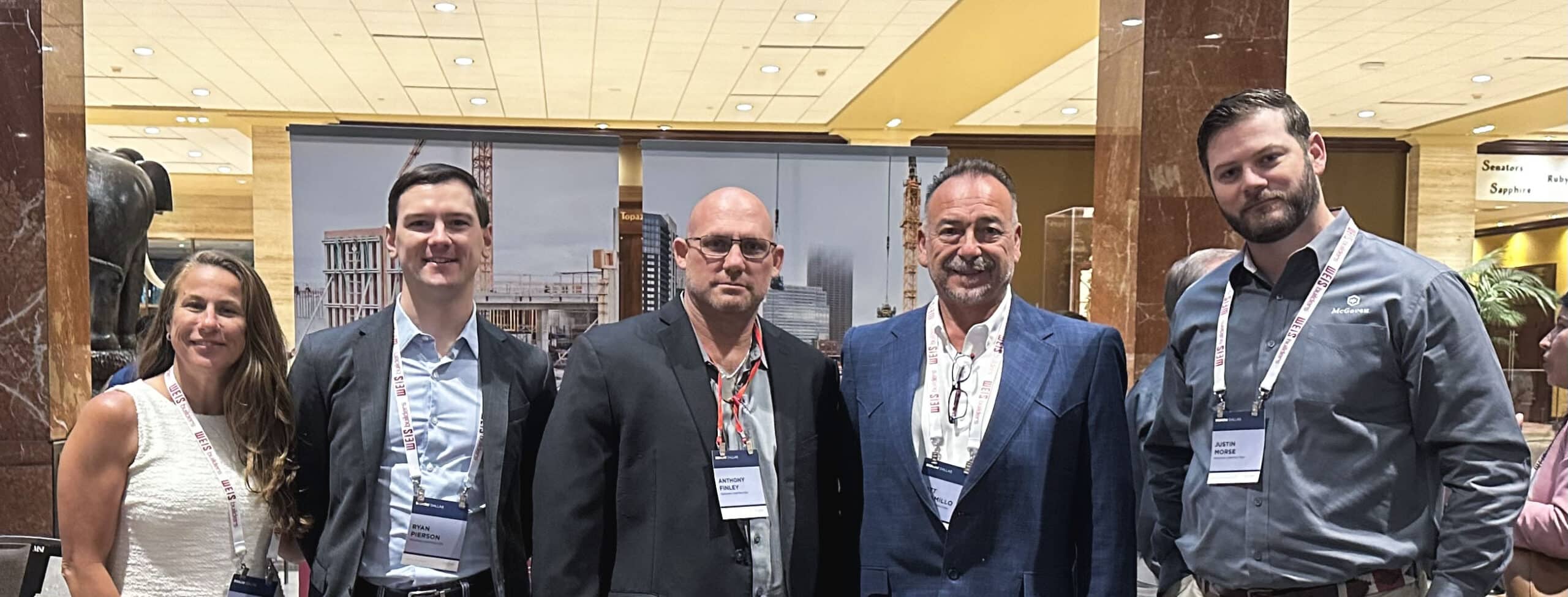As market pressures continue to impact development timelines and construction budgets, finding creative, actionable solutions has become more critical than ever, especially in the world of workforce and affordable housing.

At this year’s DFW Bisnow Multifamily Annual Conference (BMAC), experts from across the housing and development ecosystem gathered to explore how the industry can continue to move forward in the face of rising costs, tightening budgets, and evolving funding sources. Our own Anthony Finley, Project Executive and multifamily sector lead, contributed his on-the-ground perspective as a panelist in the session titled “Workforce & Affordable Housing: Trends, Challenges and Development Strategies.” He was joined by an impressive lineup of industry professionals: Ashlea Quinonez (HUD Southwest Regional Administrator), Jon Krebbs (Managing Partner, The Multifamily Group), Sharif Mitchell (Co-Founder & CEO, Northern Liberties), Sameer Walvekar (Sr. Managing Director & Head of Capital Markets, Urban Genesis), Dallas Cothrum (President, Masterplan), and Clint Williamson (VP, J Street Companies). The conversation brought together diverse voices from public and private sectors, offering a well-rounded look at the policy, financing, and execution strategies shaping the future of housing.

Anthony’s contribution to the conversation focused on the practical strategies developers and contractors can use to keep projects moving forward after budget cuts, expired grants, or changing financial conditions; a reality many in the room have faced. His approach emphasizes early collaboration, thoughtful value engineering, and smart planning during preconstruction. Here are some of the core strategies he shared:

1. Re-phasing to Minimize Double Work and Accelerate Occupancy
By strategically adjusting the construction schedule, teams can reduce redundant work and enable early occupancy in completed phases. This not only accelerates revenue generation for owners but also helps reduce the cost of General Conditions and shortens the overall schedule.

2. Targeted Value Engineering for Cost Control Without Compromise
Anthony highlighted several value engineering tactics that can be adapted across projects:
- Paving alternatives such as switching from full concrete replacement to mill-and-overlay asphalt systems.
- Foundation prep strategies that replace more expensive fill materials with methods like moisture conditioning.
- Redesigning retaining or screen walls to maintain design intent while using more cost-effective materials and methods.

3. Material and System Substitutions
Switching from higher-cost building systems, like certain roofing types, to more budget-friendly alternatives, such as composite shingles, can yield significant savings without compromising durability or appearance.

4. Collaborating With Public Partners to Share Scope
In public-private partnerships or housing authority projects, aligning early with city agencies or owners can uncover opportunities for municipal partners to absorb scopes like underground utilities or electrical work, helping ease the developer’s financial burden.

5. Protecting Access to Tax Credits and Funding
Even while making design or scope adjustments, it’s critical to ensure the project still meets the criteria for essential funding sources such as tax credits. Anthony emphasized the importance of staying in close coordination with all funding partners during these transitions.

6. Building a Strong Local Trade Base
One cost-saving strategy that applies across regions is leveraging a local subcontractor base to reduce mobilization fees and streamline schedules. It also strengthens ties with the local business community and provides more competitive pricing through reduced travel and overhead.

7. Early Market Engagement for Faster Turnarounds
Getting ahead of procurement by engaging trades during design and pre-permit stages can speed up the GMP process and allow for faster value engineering if budget adjustments are needed once final documents are released.
Putting Strategy into Action: Oklahoma City Housing Authority’s Creston Park
These strategies are being applied right now on projects like the Oklahoma City Housing Authority’s Creston Park Redevelopment, which is currently in preconstruction, with demolition scheduled to begin in July. Our team is actively applying many of the tactics Anthony outlined, including phasing plans that reduce double work, exploring VE alternatives across scopes, and coordinating with both local trade partners and city agencies to drive cost efficiency. It’s a clear example of how early, strategic planning can preserve project goals while navigating shifting funding realities.
Moving Forward With Confidence
Anthony’s panel reinforced a key theme running through today’s most successful multifamily projects: being flexible, strategic, and collaborative from day one. Whether it’s through phasing adjustments, thoughtful value analysis, or strong partner relationships, our team continues to bring proven methods to the table to help ensure affordable housing developments are successful.
We’re proud to have a seat at the table for conversations shaping the future of housing, and we remain committed to building solutions that serve both our clients and our communities.


